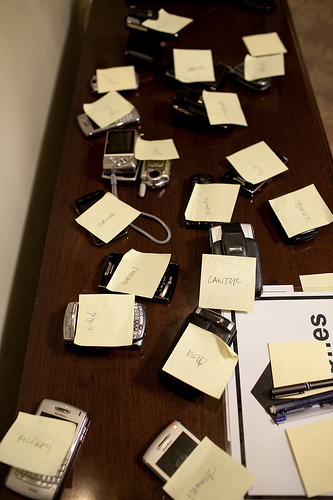On the ‘Berkman School’ and its limits
Saturday, December 5th, 2009Tim Hwang has a remarkable essay looking at what he’s provisionally calling “The Berkman School of Thought” based loosely upon the community surrounding the Berkman Center for Internet and Society at Harvard. The original post is a must-read. He proposes four pillars of Berkman School thought:
- Faith in users and emergent collaboration
- Civics as the center of attention
- “The Internet” as a specific configuration of features
- Faith in Internet as revolution
I started writing a comment on his post, but it got lengthy, so here we are.
There is probably a lot that can be said on the topic of a “Berkman School” and its relationship to cyberoptimism. Hwang notes that many Berkmanites tend to be optimistic about the Internet’s transformative potential, but that notes of caution sometimes emerge, as from Ethan Zuckerman and Eszter Hargittai. I might add Rebecca MacKinnon to that list.
I’m curious about two things.
One is how we might understand other “schools” of thought on Internet and society. Certainly many others could be suggested. There is a problem, however, in looking for groups of thought on the Internet in that many of the non-Berkman-type perspectives are rooted not in discourse directly about the Internet but rather in academic disciplines, policy communities, or business communities.
When political scientists, sociologists, or policy scholars take to understanding the Internet and society, they bring their communities’ theoretical contexts into play. Carving out schools might be easiest if the criteria for delineation are assumption-based rather than content-based. I think this is what Hwang is on to when he talks about “faith” in various principles. But if those are the principles, MacKinnon’s work on “cybertarianism” and Hargittai’s work on web-use divides and socioeconomic status, for example, might tend to put them farther from the Berkmanite epistemic community, despite their personal affiliations with the center.
Moreover, Benkler’s work reaches out toward social and economic theory while also engaging with the particular story of the Internet.
Two is how US- or democracy-specific are these assumptions, and to what extent the center’s physical home at Harvard Law School affects some of these assumptions. Many participants in this line of thought are not American, but that doesn’t remove the fact that freedoms, free speech, and liberal democracy seem to be key motivating factors. I think this is similar to what commenter Jillian C. York mentions at Hwang’s post.
This is important because many Berkmanites are activists as well as thinkers. In political terms, many of these projects, their coordinated action, and their claims making vis à vis various business and government bodies could mean it’s most reasonable to think of a Berkman School as more of a Berkman-like movement. Without rambling on about the ties between schools of thought and political movements, I just thought that would be an interesting thing to point out.
I hope this discussion continues.

